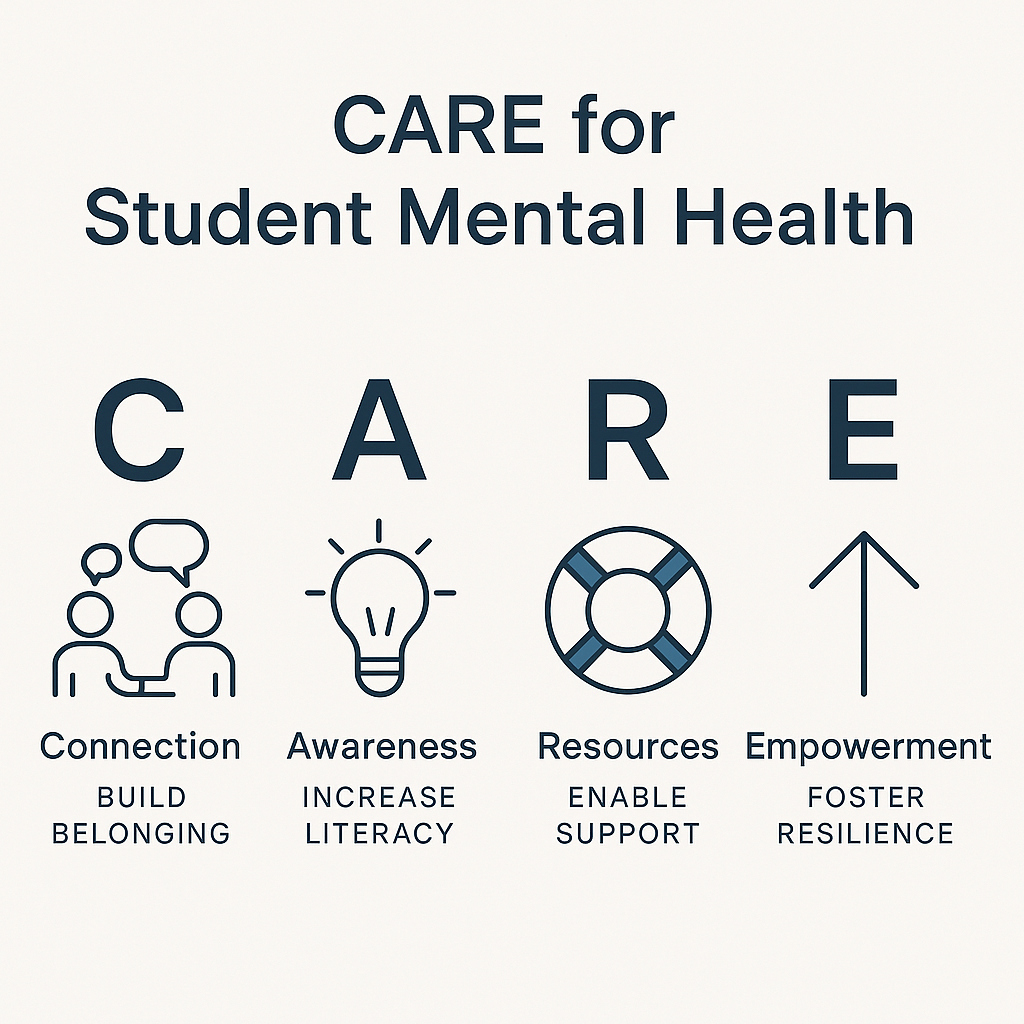
Dr. Agata Rudnik is a clinical psychologist, researcher, and academic teacher at the University of Gdańsk. She leads the Academic Psychological Support Centre at the UG and specializes in health psychology, with a focus on the quality of life in gastrointestinal diseases and neurodiversity. Her research combines qualitative and mixed methods to explore patient experiences and student well-being. She has extensive experience in international collaboration and is committed to developing inclusive, evidence-based mental health support in higher education.
C – Connection
Foster meaningful relationships and a sense of belonging.
-
Encourage peer support, mentorship, and inclusive communities.
-
Promote open dialogue about mental health to reduce stigma.
-
Strengthen bonds between students, faculty, and support services.
A – Awareness
Increase understanding and literacy around mental health.
-
Provide education on stress, burnout, and early warning signs.
-
Normalize help-seeking behavior and emotional self-awareness.
-
Train staff and students to recognize and respond to mental health needs.
R – Resources
Ensure access to mental health support and tools.
-
Offer counseling, workshops, and self-help materials.
-
Integrate well-being support into the academic environment.
-
Tailor services to the diverse needs of the student population.
E – Empowerment
Enable students to take charge of their well-being.
-
Promote resilience, self-care, and adaptive coping strategies.
-
Encourage agency in balancing academic and personal demands.
-
Support skill-building for managing emotions, time, and expectations.
Rudnik, A., Sobczak, K., Sawicki, A., & Zdun-Ryżewska, A. (2025). Exploring the Interplay of Stress, Fatigue, and Empathy: The Mediating Role of Cognitive Flexibility in Enhancing the Well-being of University Students in Medical and Social Disciplines. PLOS ONE (in publication)
Rudnik, A., Anikiej-Wiczenbach, P., Szulman-Wardal, A., Conway, P., & Bidzan, M. (2021). Offering psychological support to university students in Poland during the COVID-19 pandemic: Lessons learned from an initial evaluation. Frontiers in Psychology, 12, 635378.
https://www.frontiersin.org/journals/psychology/articles/10.3389/fpsyg.2021.635378/full
Sobczak, K., Zdun-Ryżewska, A., & Rudnik, A. (2021). Intensity, dynamics and deficiencies of empathy in medical and non-medical students. BMC Medical Education, 21, 1-9.
https://link.springer.com/article/10.1186/s12909-021-02927-x
Wielewska, M. K., Godzwon, J. M., Gargul, K., Nawrocka, E., Konopka, K., Sobczak, K., Rudnik, A. & Zdun-Ryzewska, A. (2022). Comparing students of medical and social sciences in terms of self-assessment of perceived stress, quality of life, and personal characteristics. Frontiers in Psychology, 13, 815369.
https://www.frontiersin.org/journals/psychology/articles/10.3389/fpsyg.2022.815369/full
Zdun-Ryżewska, A., Sobczak, K., & Rudnik, A. (2022). Fatigue, Pro-Social Attitude and Quality of Life as Predictors of Empathy in Medical and Social-Oriented Students. International Journal of Environmental Research and Public Health, 19(23), 15853.
